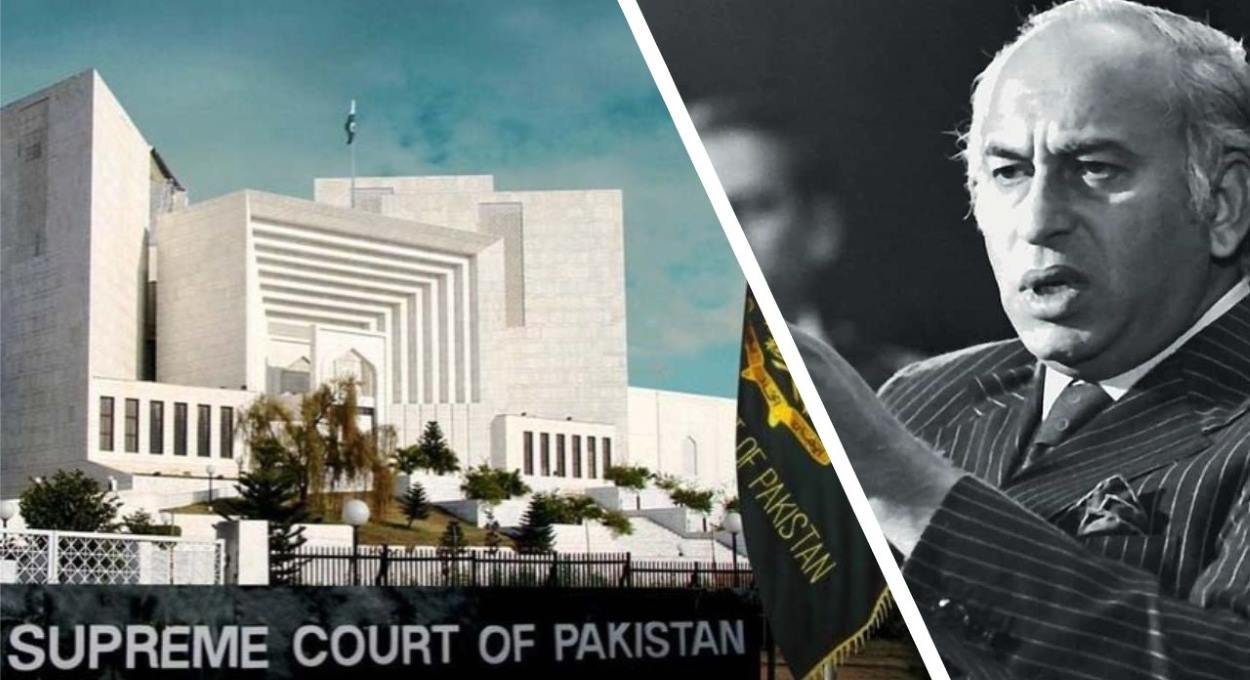During the hearing of the Zulfikar Ali Bhutto presidential reference, Chief Justice of Pakistan (CJP) Qazi Faez Isa emphasized that the Supreme Court (SC) is obligated to deliver a verdict on presidential references. The nine-member larger bench, led by CJP Qazi Faez Isa, which includes Justices Tariq Masood, Mansoor Ali Shah, Yahya Afridi, Aminuddin, Jamal Mandukhel, Muhammad Ali Mazhar, Hasan Azhar Rizvi, and Musarat Hilali, heard the case.
The SC has adjourned the hearing until tomorrow. Former Attorney General Khalid Javed Khan, acting as a judicial assistant, asserted that the trial of the Zulfikar Ali Bhutto case was not fair and free, submitting reservations against the trial in writing.
He contended that while a retrial might not be possible in the SC, the court could declare the judgment against an unfair trial. Justice Mansoor Ali Shah noted that the court can examine the transparency and fairness of the trial but cannot decide on the merits of Bhutto’s case.
CJP Qazi Faez Isa stated that the SC is obligated to give judgments on presidential references, particularly regarding restraints and influence on the judiciary. Khalid Javed Khan claimed that during the presidential reference, all state machinery, including the judiciary, was under the control of dictator Zia-ul-Haq.
He highlighted controversial remarks about Zulfikar Ali Bhutto made by Lahore High Court Judge Aftab Ahmed, emphasizing that the court cannot give a certificate of being a good or bad Muslim. Khalid Javed Khan argued that if the judges were independent and not under influence, Zulfikar Ali Bhutto would not have been hanged.
Attorney General Mansoor Awan acknowledged that the constitution was abolished during martial law, and the rule of law was not effective during that time.



